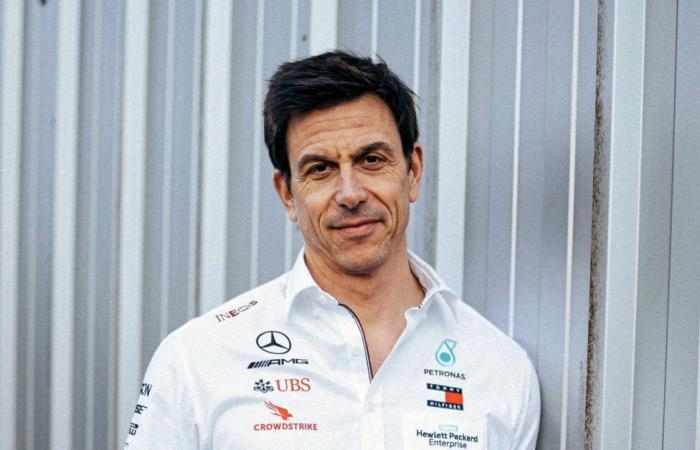In a world where the term “leader” often carries prestige, Mercedes Formula 1 boss Toto Wolffmade a surprising admission: he doesn't like being called that. Despite overseeing one of the most dominant periods in motorsport history, Wolff insists Mercedes' success is based on collective strength, not individual authority.
“Leadership Redefined: A Team-Oriented Philosophy”
Since he took charge of theteam, as CEO and co-owner for Mercedes in 2013, Wolff guided the team to a unprecedented number of eight consecutive constructors' championships (2014-2021). Yet for all his accomplishments, he rejects the idea of being Mercedes' sole leader.
In the podcast High PerformanceWolff explained his discomfort with the term:
“I really struggle with the word 'leader' because a leader to me is someone who stands above their people, not with them,” he said.
Instead, Wolff sees leadership as a distributed effort, with many people contributing their expertise. Of Lewis Hamilton on the track at James Allison in technical development, Wolff believes Mercedes thrives on a shared vision, not top-down directives.
“There are so many leaders in this organization,” he added. “Only if we do our jobs well and share these goals will we succeed.”
“The ball runs, not the players”
Wolff illustrated his leadership ethos with a metaphor:
“We're not like a bunch of five-year-olds playing football, all running after the ball. We let the ball run. We stay where we are, in our center of competence.”
This approach highlights Wolff's commitment to creating an environment where everyone operates at their best, contributing to collective victory rather than the pursuit of individual glory.
“The battle against self-doubt”
Despite his remarkable achievements, Wolff admits to having constant thoughts and doubts about himself.
“Every day there's a moment where I ask myself, 'Am I really living up to my own expectations here?'” he shared.
This introspection extends to even the smallest daily habits, like one's morning routine. Wolff revealed that he wonders if the content he reads at breakfast is productive or a distraction.
“Did I read the right thing to put me in the right frame of mind to perform in the morning, or did I read nonsense?”
“A culture of shared success”
Wolff's rejection of the traditional label of “leader” is emblematic of the culture he cultivated at Mercedes. By prioritizing collaboration and empowering individuals to lead in their areas of expertise, Wolff has built a team that operates like a well-oiled machine.
Hamilton, whom Wolff cites as a leader in his own right, exemplifies this philosophy on the track, while Allison's technical innovations propel Mercedes' engineering excellence. Together, these elements create a collective power that has redefined dominance in Formula 1.
“The Wolff Legacy: Leadership Without Ego”
As Mercedes continues to pursue success in the ever-competitive Formula 1 landscape, Wolff's philosophy serves as a model for lasting excellence. By rejecting the image of a single, all-powerful leader and adopting a team-oriented approach, Wolff set a new standard for leadership in elite motorsport—and beyond.






